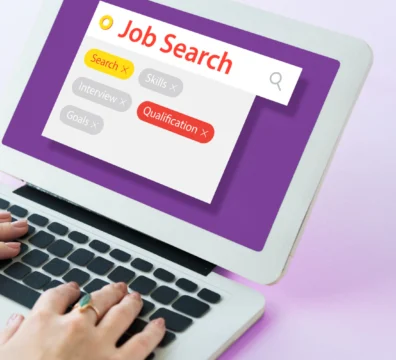Remote work was something that became very commonplace during the Covid-19 pandemic in 2020. While HRs and organisational heads thought employees would flock back to their offices once the global lockdown was lifted. But, Forbes stated that 12.7% of full-time workers are now working remotely in 2023, and 28.2% are employed in the hybrid model.
Thus, businesses strive to manage remote employees, maintain efficiency, productivity, and company culture, and prevent malpractices like data breaches and moonlighting.
This blog delves into the best ways to manage remote teams, focusing on effective leadership techniques, HR strategies for support and development, and best practices for optimising productivity.
So, let’s dive into remote work management, where flexibility meets productivity, and distance knows no bounds in achieving organisational goals.
Effective Techniques for Managing Work from Home Employees
Effective leadership is best for any successful remote team. In this digital era, leading from afar brings unique challenges. But, with the right approach, it’s possible.
Here’s how:
Communicate Clearly and Often
Good communication is the foundation of remote work. Using video calls, instant messaging, and emails is vital to stay connected. Clear instructions and expectations prevent misunderstandings.
So, schedule regular team meetings and one-on-one check-ins to ensure everyone feels heard and aligned with their goals. Remember, it’s better to over-communicate than leave room for assumptions.
Trust Your Team
Remote work thrives on trust. So, rather than monitoring every minute, focus on the results your team delivers. Empower them with the autonomy to manage their schedules.
This approach demonstrates your confidence in their abilities, encouraging a culture of accountability and respect. Trust also means allowing them to take ownership of their tasks, fostering a sense of responsibility and pride in their work.
Provide Regular Feedback
Feedback is a two-way street. It’s about recognising achievements and addressing areas for improvement. So, make it a regular part of your routine to provide constructive feedback.
Encouraging an open feedback culture helps individuals feel valued and part of the team’s progress.
Embrace Continuous Learning
The digital landscape is always evolving, and so should your team. So, encourage the exploration of new tools and methodologies that can enhance efficiency and collaboration.
Provide access to online courses and workshops. Promoting a culture of continuous learning not only keeps your team’s skills sharp but keeps them engaged and motivated.
By deepening your understanding of the latest trends in remote work, you can better navigate the challenges of the work-from-home work model.
Top HR Strategies to Manage Remote Employees
Enhancing support and development for remote employees is crucial for any organisation’s success. HR plays a pivotal role in ensuring remote teams remain engaged, productive, and satisfied.
So, here, we’ll delve into effective remote management strategies that HRs can follow:
Foster a Strong Onboarding Experience
First impressions matter. To manage remote employees successfully, start with a comprehensive onboarding process. This includes
- First, clear communication about company culture
- Second, an understanding of the long-term and short-term expectations
- Next, access to available resources
- Finally, conducting virtual meet-and-greets with team members and key departments
So, by investing in a thorough onboarding experience, HR can lay a solid foundation for remote employees’ long-term success and engagement.
Enable Continuous Learning and Growth
For remote employees to thrive, continuous learning is key. Therefore, HR strategies should include access to online courses, webinars, and virtual workshops tailored to skill development and career growth.
Encouraging employees to set personal development goals and offering support can effectively manage remote employees’ career aspirations. This not only helps in managing remote employees but also in retaining top talent by showing a commitment to their professional growth.
Implement Flexible and Supportive Policies
Flexibility is crucial to manage remote employees successfully. So, HR should develop policies that recognise the unique challenges of remote work, such as flexible working hours and mental health days.
This can be done by:
- First, creating supportive policies accommodating different time zones and personal obligations
- Second, create a more inclusive and supportive remote work environment to prioritise employee well-being
Establish Regular Check-ins and Feedback Loops
Consistent communication is essential to manage remote employees effectively. Therefore, HR should facilitate regular check-ins between managers and their remote teams to discuss progress, challenges, and well-being.
Encouraging an open feedback culture where remote employees can share their insights and suggestions can lead to continuous improvement and innovation. These interactions are vital for maintaining connection and ensuring remote employees feel valued and heard.
So, incorporating these HR strategies can allow you to manage remote employees successfully.
Managing Remote Teams Best Practises
Optimising productivity is essential when managing remote employees. Achieving this requires a blend of clear expectations, tools, and a supportive culture.
Here’s how to enhance productivity for remote teams:
Set Clear Goals and Expectations
To manage remote employees successfully, setting clear, achievable goals is crucial. This clarity helps remote workers understand what is expected of them, aligning their daily tasks with the company’s broader objectives. So, regularly review these goals to ensure they remain relevant and motivating.
Equip Teams with the Right Tools
The right digital tools to manage remote employees can streamline workflows and boost efficiency. So, to manage work-from-home employees effectively, provide access to
- project management software
- communication platforms
- collaboration tools
Foster a Culture of Accountability
When you manage remote employees, fostering a culture of accountability is key. So, encourage teams to take ownership of their work and results.
Regular check-ins and updates on progress can help maintain focus and drive, ensuring that everyone is accountable for their contributions.
Encourage Work-Life Balance
Encouraging a healthy work-life balance is vital to managing remote employees successfully. So, respect boundaries to prevent burnout and ensure remote workers have time to recharge. Ensure that remote workers are not asked to work during off-hours (beyond their log-out time), on weekends, and during holidays.
A well-rested team is more engaged and productive, which is beneficial for both the employees and the organisation.
How 6 Pence Helps
Hiring employees, whether hybrid, remote, or work-from-office, can be challenging for organisations. The right employee can be instrumental to a company’s success. Therefore, if you want to hire permanent or temporary staff, opt for 6 Pence’s staff outsourcing solutions.
At 6 Pence, we help our business partners close vacancies faster by finding quality candidates in the shortest possible time because of our comprehensive candidate database, top recruiters, and a tailored hiring process.
To manage remote employees, 6 Pence provides access to our 24/7 HR e-service portal, which allows both staff and employers to access any documentation at any time, and anywhere.
Frequently Asked Questions
What is managing remote employees?
Managing remote employees involves overseeing the work and well-being of staff who work outside the traditional office environment, ensuring productivity, engagement, and collaboration.
How do you manage a remote team effectively?
To manage a remote team effectively, use clear communication, set explicit goals, leverage technology for collaboration, and foster a trust-based culture.
How HR can support remote employees?
HR can support remote employees by implementing flexible work policies, providing tools for collaboration and wellness, facilitating regular feedback, and offering professional development opportunities.
Also Read : Driving Employee Engagement: 6 Easy Tips for Businesses




































































































